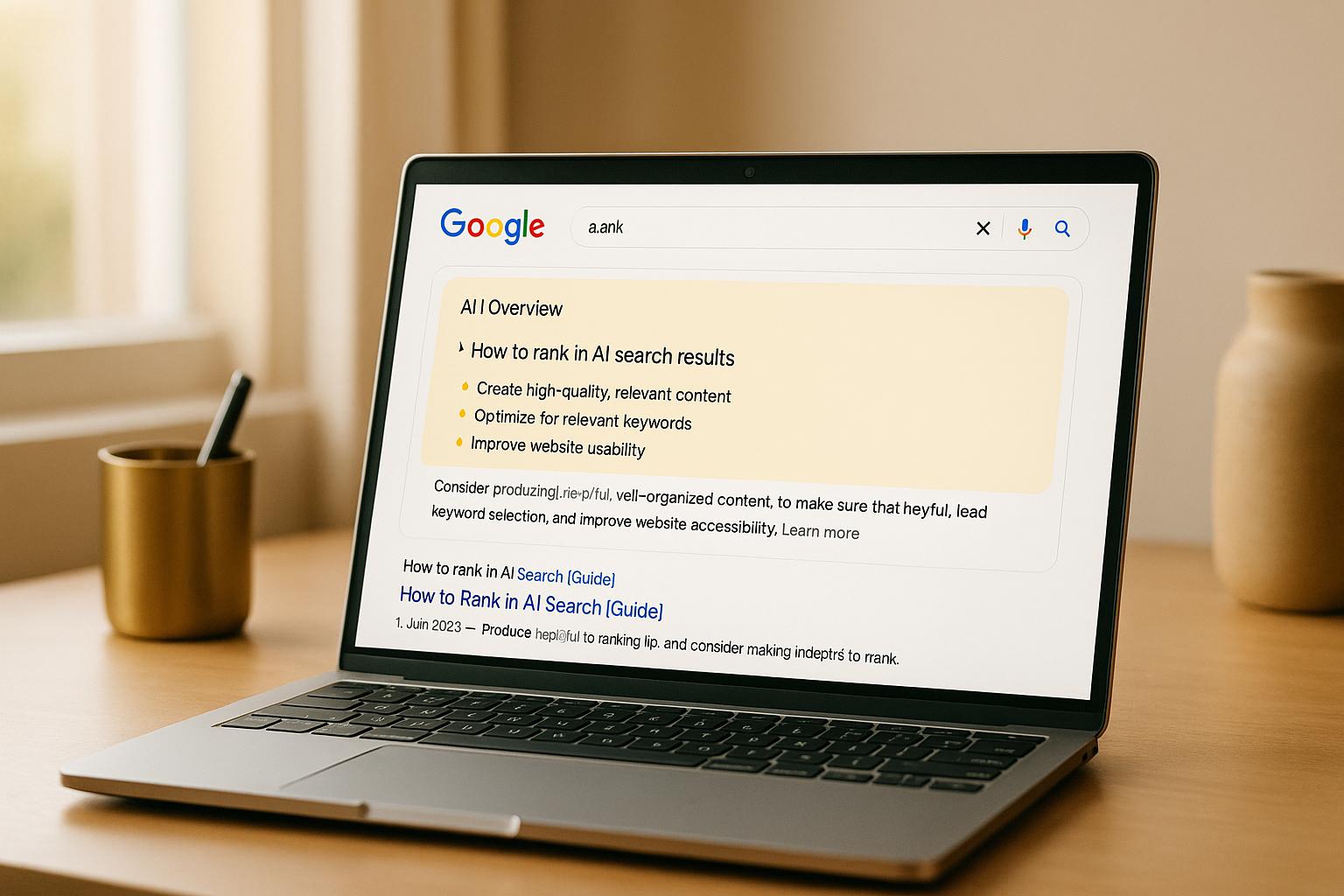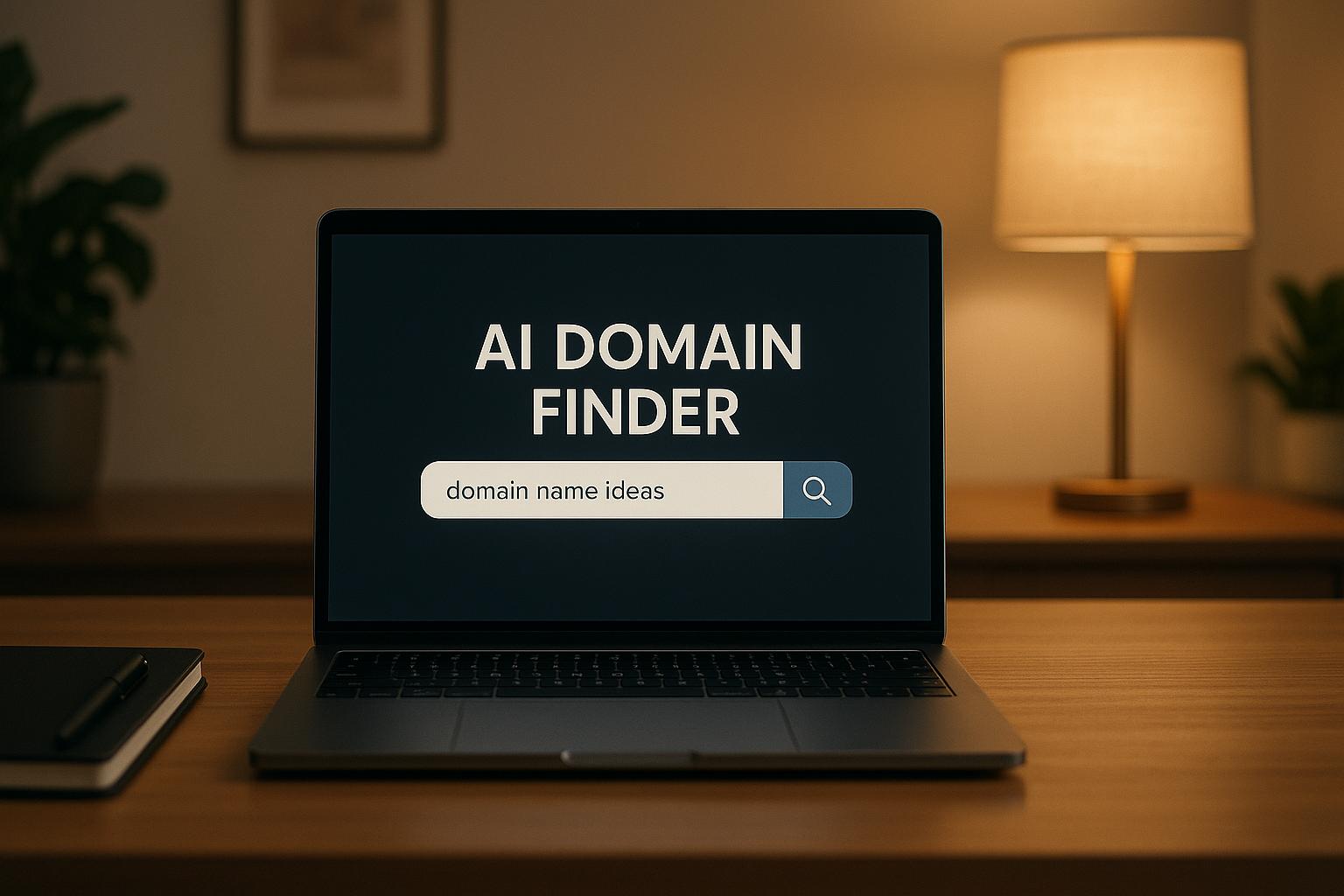Navigating SEO can be tricky, but AI-powered tools simplify the process. These tools analyze websites, optimize content, and offer actionable insights to improve rankings on Google. Here's a quick overview of five top AI SEO tools and their strengths:
- Surfer SEO: Focuses on content optimization with tools like Content Editor and SERP Analyzer. Plans start at $79/month (annual billing).
- Semrush: A versatile platform for SEO, paid ads, and social media. Includes technical audits and keyword tracking. Plans start at $108.33/month (annual billing).
- Clearscope: Specializes in semantic analysis for content depth and relevance. Pricing is custom.
- Search Atlas: Offers AI automation for content creation and technical audits. Plans start at $99/month.
- seoClarity: Built for large enterprises, focusing on technical audits and issue prioritization. Pricing is custom.
Quick Comparison:
| Tool | Starting Price | Key Focus | Best For |
|---|---|---|---|
| Surfer SEO | $79/month (annual) | Content optimization | Content creators, bloggers |
| Semrush | $108.33/month (annual) | All-in-one SEO suite | Agencies, advanced users |
| Clearscope | Custom pricing | Semantic analysis | Content-focused teams |
| Search Atlas | $99/month | AI automation | Budget-conscious users |
| seoClarity | Custom pricing | Enterprise SEO | Large-scale websites |
Each tool offers unique features tailored to different needs. Whether you're a small business, agency, or large enterprise, there's an AI SEO tool that fits your goals and budget.
5 Best AI SEO Tools in 2024
1. Surfer SEO
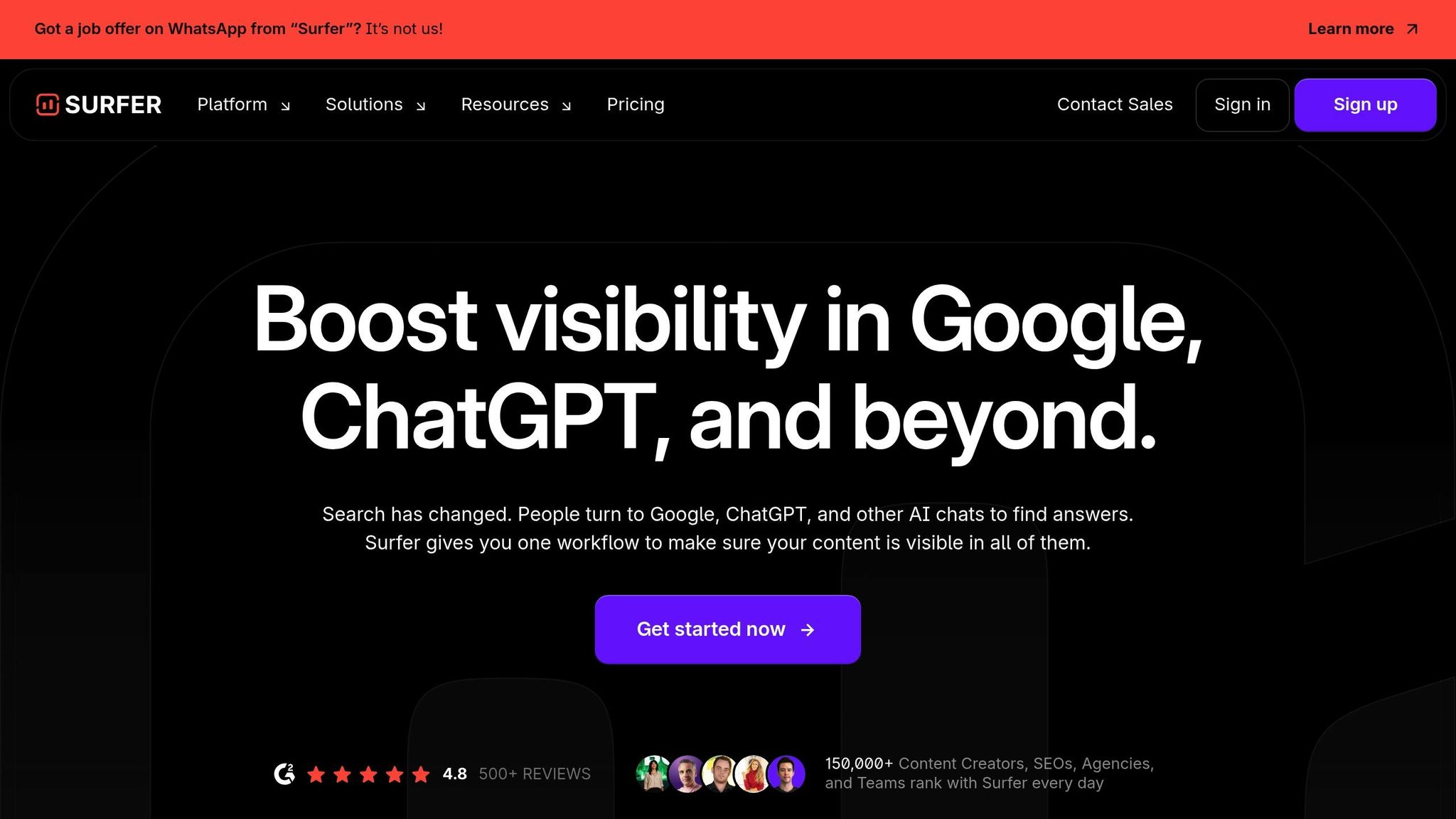
Surfer SEO is a content-focused AI SEO tool designed to enhance on-page optimization and streamline content creation. By leveraging machine learning, it analyzes top-ranking pages and provides targeted recommendations to improve your search rankings.
Content Optimization
The Content Editor in Surfer SEO breaks down the top 10 search results for your chosen keyword, evaluating factors like keyword density, semantic terms, structure, and readability. It also includes an AI article generation feature that creates SEO-optimized, full-length content based on your input. To ensure you're covering all the bases, the Terms Assistant highlights key semantic keywords that your competitors are already using.
For those looking to refresh older content, the Auto-Optimize feature is a game-changer. It automatically updates existing pages to improve SEO performance, offering a quick way to boost rankings without starting from scratch.
In addition to content creation, Surfer SEO excels in on-page analysis.
On-page Analysis
Surfer's Content Audit tool monitors the performance of your published pages over time. It identifies pages losing rankings and provides actionable suggestions for improvement. Depending on your plan, it can track anywhere from 200 to 1,000 pages, giving you a clear view of your site's overall health.
The SERP Analyzer digs into search engine results pages to pinpoint content gaps and new opportunities. However, this feature is now an add-on for Essential plan users, priced at $29/month for up to 100 searches daily.
These tools are part of a pricing structure tailored to suit various business needs.
Pricing
Surfer SEO offers a tiered subscription model with three main plans:
| Plan | Monthly Price | Annual Price | Content Editor Articles | AI Articles | Pages Tracked |
|---|---|---|---|---|---|
| Essential | $99/month | $79/month | 30/month | 5/month | 200 pages |
| Scale | $219/month | $175/month | 100/month | 20/month | 1,000 pages |
| Enterprise | Custom | Custom | Custom limits | Custom | Custom |
Opting for annual billing provides a discount of 20–23%. For example, the Essential plan saves $240 per year, while the Scale plan saves $528 annually.
If you exceed your plan's AI article credits, additional credits cost $19 each. Discounts apply for bulk purchases, with prices dropping to as low as $15.58 per credit when buying 100. Surfer also offers optional add-ons like the Rank Tracker ($17/month for 200 keywords) and AI Tracker (starting at $95/month).
First-time subscribers to the monthly Essential or Scale plans benefit from a 7-day money-back guarantee, but Surfer does not offer a free trial.
With an average rating of 4.5 out of 5 across review platforms, Surfer SEO receives high praise from users. It scores particularly well on Capterra (4.9/5) and G2 (4.8/5), reflecting strong overall satisfaction.
2. Semrush
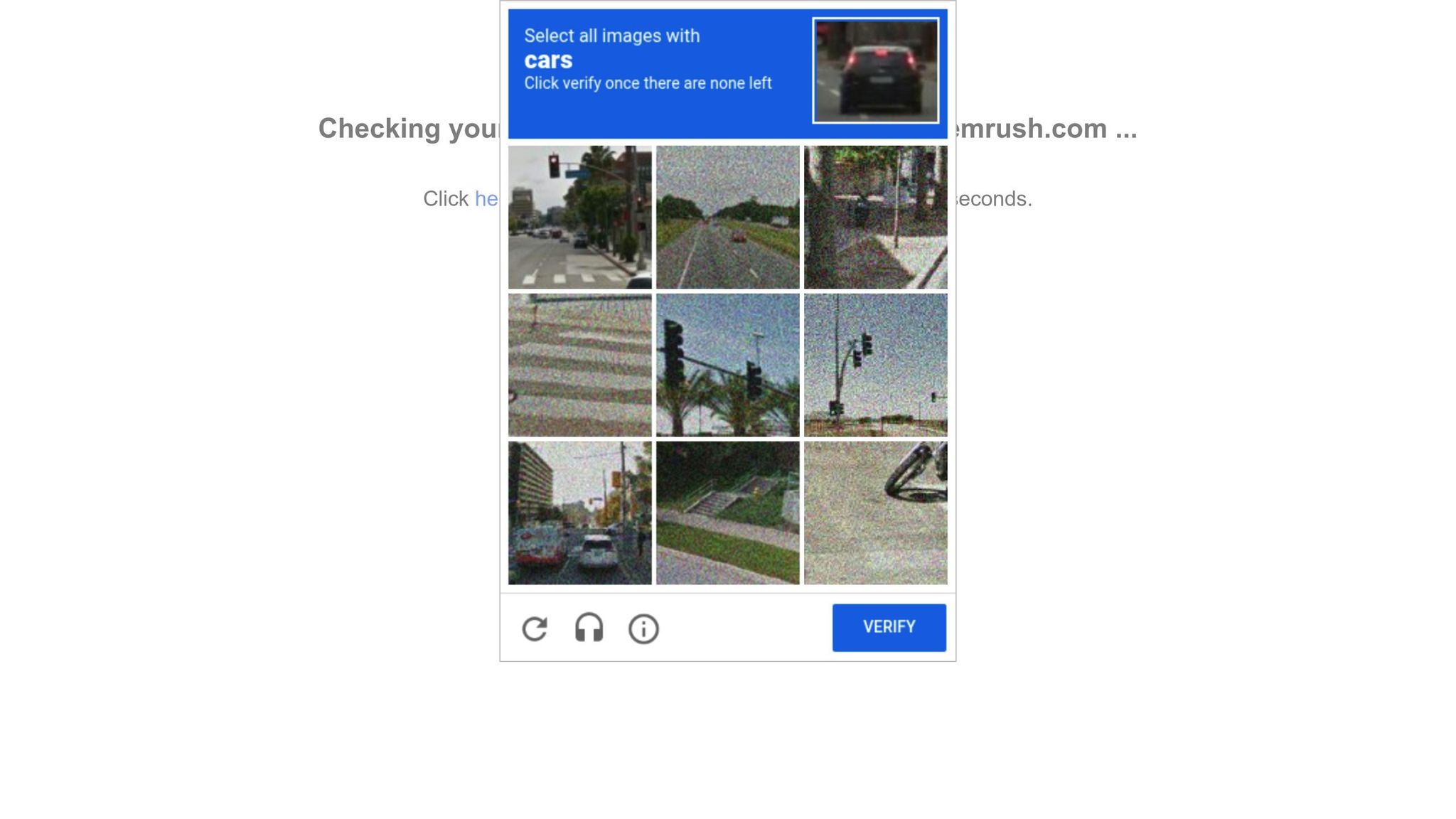
Semrush is a powerhouse SEO platform that combines technical audits with tools for content improvement. Leveraging machine learning, it processes vast amounts of data to provide actionable recommendations for boosting your website's search engine performance.
Technical SEO Audits
The Site Audit feature scans your website for over 140 technical factors that could affect your search rankings. These include page speed, mobile usability, internal linking, and crawlability. It even evaluates elements like Core Web Vitals, schema markup, HTTPS implementation, duplicate content, broken links, and redirect chains. The results are summarized in a Site Health Score, giving you a quick snapshot of your site's technical performance, along with prioritized recommendations to address issues.
For a deeper dive, the Log File Analyzer examines how search engine bots interact with your site. It identifies pages that may not be efficiently crawled, helping you optimize your crawl budget.
On-page Analysis
Semrush doesn’t stop at technical audits - it also fine-tunes your on-page SEO. The On Page SEO Checker compares your pages against top-ranking competitors for your target keywords. It evaluates semantic keyword usage, content length, readability, and technical aspects, offering tailored suggestions for improvement.
The Content Gap tool is another standout feature. It identifies keywords your competitors rank for but you don’t, highlighting opportunities to create or optimize content that can bridge the gap.
For businesses targeting local audiences, the Local SEO toolkit is invaluable. It tracks local pack rankings, monitors your Google Business Profile performance, and uncovers citation opportunities in local directories.
Content Optimization
Semrush excels in content strategy, too. The SEO Writing Assistant integrates seamlessly with Google Docs and WordPress, offering real-time feedback on semantic keywords, content length, and readability based on top-performing pages.
Need ideas for your next piece? The Topic Research tool uses AI to generate content suggestions. It identifies trending subtopics, related questions, and potential angles that resonate with your audience. Plus, it shows search volume and competition levels for different topics, helping you prioritize effectively.
To keep existing content fresh, the Content Audit tool evaluates its performance. It pinpoints pages that need updates, consolidation, or removal by analyzing metrics like organic traffic, backlinks, and social shares.
Pricing
Semrush offers a subscription-based pricing model with three main plans tailored to different needs:
| Plan | Monthly Price | Annual Price | Projects | Keywords to Track | Pages to Crawl |
|---|---|---|---|---|---|
| Pro | $129.95/month | $108.33/month | 5 | 500 | 100,000 |
| Guru | $249.95/month | $208.33/month | 15 | 1,500 | 300,000 |
| Business | $499.95/month | $416.66/month | 40 | 5,000 | 1,000,000 |
Annual plans offer a 17% discount compared to monthly billing. For example, the Pro plan saves you about $260 annually, while the Business plan saves over $1,000.
Each plan has unique features. The Guru plan includes access to historical data, multi-location tracking, and Looker Studio integration. The Business plan takes it further with API access, extended limits, and white-label reporting.
New users can explore Semrush with a 7-day free trial, which provides limited access to most features. Additional tools like Semrush Trends and Local SEO can be added for $20 to $40 per month, depending on your needs.
3. Clearscope
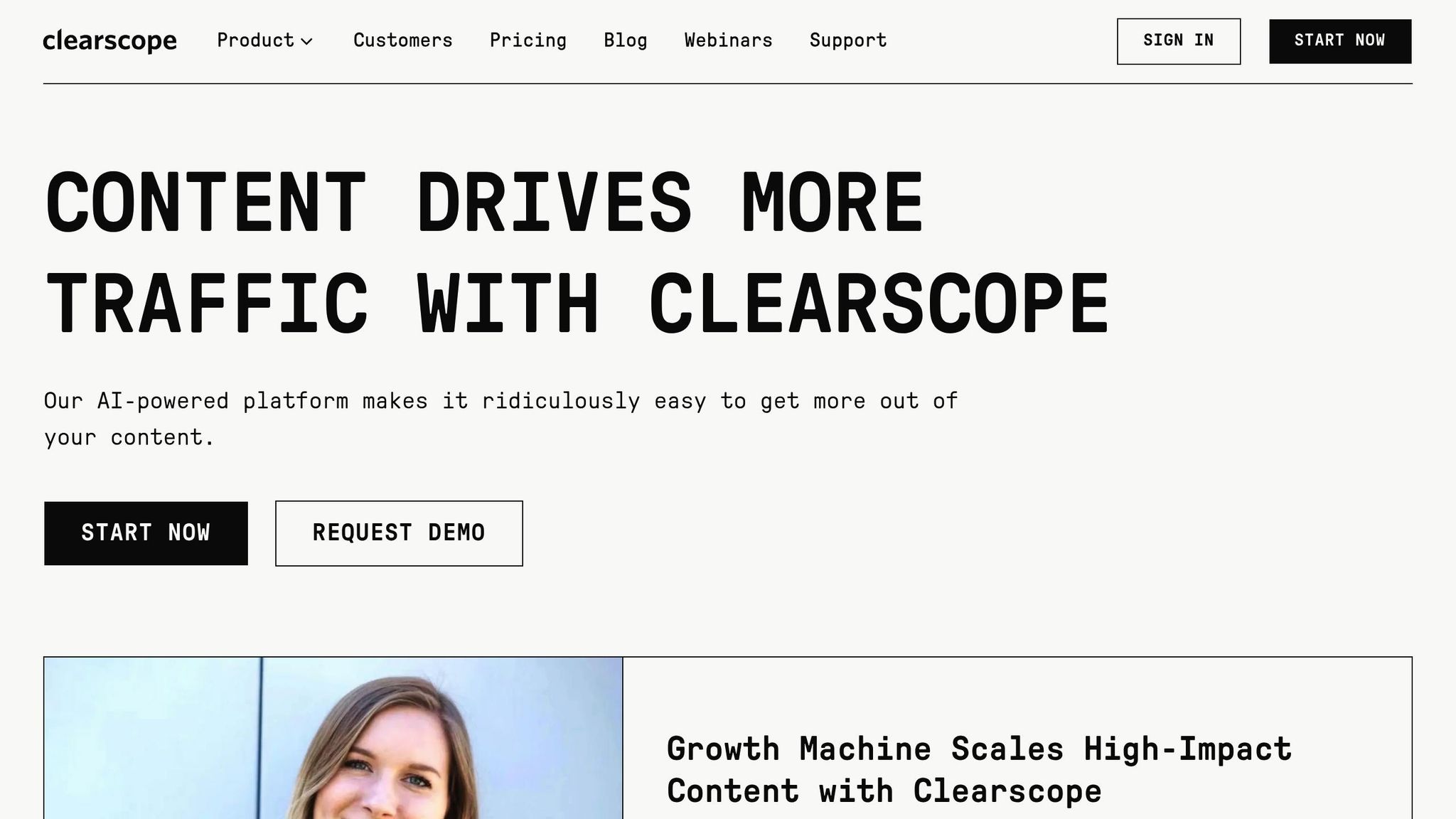
Clearscope is an AI-driven SEO platform trusted by big names like Adobe, Shopify, and HubSpot to elevate their content game.
On-page Analysis
Clearscope takes a unique approach to SEO by focusing on content depth and semantic relevance rather than just technical audits. It analyzes top-ranking pages to uncover essential terms and semantic keywords that should be included in your content. This ensures your writing aligns with search intent and thoroughly covers the topic at hand.
What sets Clearscope apart is its ability to go beyond simple keyword matching. It identifies related terms, synonyms, and contextual phrases used by high-performing content, giving you the tools to create pieces that search engines recognize as authoritative and well-rounded. On top of that, the platform highlights popular questions and competitive content ideas, helping you strengthen your content’s expertise, authority, and trustworthiness (E-E-A-T). These insights allow for ongoing refinement and real-time improvements to your content.
Content Optimization
At the heart of Clearscope is its real-time content optimization. As you write, the platform provides instant feedback, suggesting relevant terms to incorporate naturally. This helps you avoid keyword stuffing while keeping your content engaging and aligned with search engine expectations.
Clearscope uses advanced NLP algorithms and LLM technologies from industry leaders like Google Cloud, OpenAI, and IBM Watson to streamline your workflow and boost writing efficiency. It integrates seamlessly with tools like Google Docs, Microsoft Word, and WordPress, allowing you to optimize content without leaving your preferred platform.
Optimization doesn’t stop once your content is published. Clearscope offers tools for monitoring content performance, ensuring your work continues to drive organic traffic over time. You can easily spot pieces that need updates or adjustments to stay relevant as search trends evolve.
Clearscope’s impact is backed by real-world results. For example, Brafton saw an 83.7% average increase in English blog clicks and an incredible 721% jump in organic clicks for their German content. These numbers showcase the platform’s ability to deliver measurable success.
sbb-itb-212c9ea
4. Search Atlas
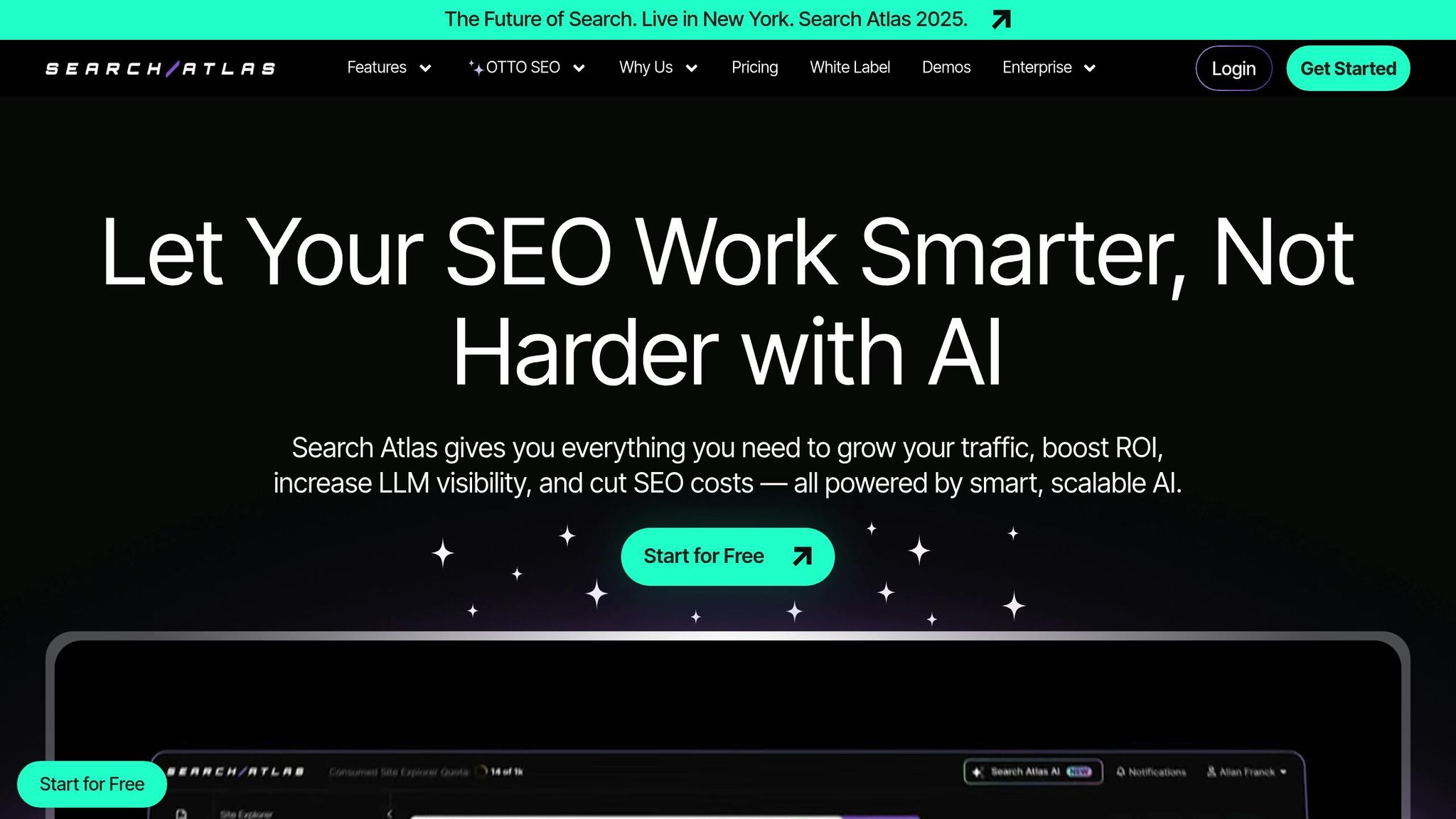
Search Atlas is an AI-driven SEO platform designed to blend traditional optimization techniques with advanced automation. It’s particularly suited for agencies and businesses juggling multiple client accounts. Powered by its suite of OTTO tools, the platform covers everything from crafting content to conducting technical audits.
On-page Analysis
Search Atlas employs its OTTO SEO Projects to deliver automated insights into how pages are performing and where they can improve. It evaluates factors like keyword density, semantic relevance, and content structure while providing actionable suggestions. Performance metrics are tracked continuously, and for those on higher-tier plans, topical dominance metrics reveal how well content covers specific subjects. These on-page insights work alongside the platform’s technical tools to offer a well-rounded SEO strategy.
Technical SEO Audits
When it comes to technical SEO, Search Atlas doesn’t miss a beat. Its OTTO Crawler Intelligence scans websites for common issues, such as broken links, duplicate content, slow page speeds, and mobile responsiveness problems. With the Site Explorer feature, users benefit from real-time site monitoring and immediate alerts when issues arise, allowing for quick fixes. Additionally, the platform assesses site architecture and internal linking to ensure everything is in top shape.
Content Optimization
Search Atlas also simplifies content creation and improvement. The SCHOLAR Semantic Content Generator creates search-intent-aligned content, while the Content Assistant polishes existing pieces. For added convenience, the 1-Click Publishing feature integrates directly with WordPress, and built-in planning tools help users manage editorial calendars and maintain a steady publishing schedule.
Pricing
Search Atlas offers flexible pricing plans to meet different business needs:
- Starter Plan: Priced at $99 per month, this plan is ideal for solo marketers and freelancers. It includes 1 OTTO SEO Project, 40 articles per month, and tracking for the top 10,000 GSC keywords per site.
- Growth Plan: At $199 per month (often discounted from $249), this plan is tailored for growing agencies and mid-sized businesses. It includes 2 OTTO SEO Projects, 100 articles per month, and tracking for the top 100,000 GSC keywords per site.
For those with larger needs, Pro and Enterprise plans offer even more features and higher quotas. All plans come with a 7-day free trial, and users can purchase additional OTTO SEO Projects or AI generation points as needed.
5. seoClarity
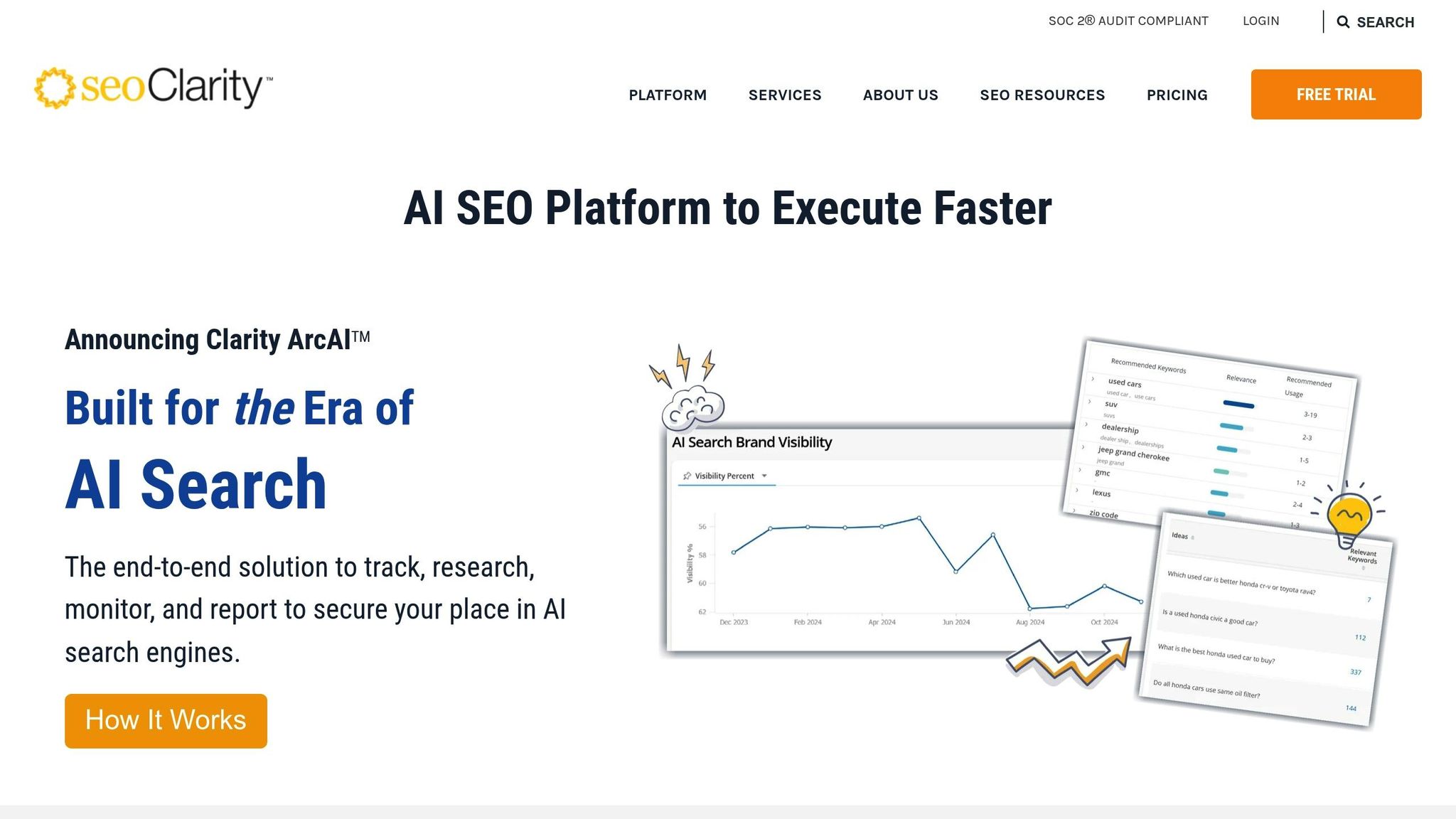
seoClarity is designed with enterprise-level websites in mind, offering automated technical audits to pinpoint issues that could hurt search performance. This platform performs regular scans to uncover a variety of problems, such as broken links, missing meta tags, JavaScript rendering errors, and Core Web Vitals challenges. Its Site Clarity tool provides in-depth reports on crawlability, indexability, and site architecture. It also highlights issues like duplicate content, slow-loading pages, and mobile usability problems.
For larger websites, seoClarity goes a step further by prioritizing issues based on their potential impact on search rankings. It then delivers clear, actionable steps to address these problems. This targeted approach ensures that even the most complex websites can achieve meaningful SEO improvements.
Advantages and Disadvantages
Building on the detailed reviews above, here's a quick look at the strengths and weaknesses of each AI SEO tool. Each option brings something unique to the table, so understanding these trade-offs can help you pick the right one based on your goals and budget.
Surfer SEO stands out for its content optimization features, especially its Content Score, which has a 26-28% correlation with Google rankings - a solid guide for crafting high-performing content. With 16,000+ businesses and over 150,000 customers in 140+ countries, its reputation speaks for itself. However, its keyword research capabilities are limited compared to specialized tools, and blindly following its recommendations can lead to over-optimization.
Semrush is a powerhouse, offering a 20-billion keyword database alongside tools for SEO, paid ads, and social media marketing. While its feature set is extensive, it comes with a steep learning curve and a high price tag, making it less beginner-friendly.
Clearscope excels in semantic analysis, helping align your content with user intent and offering actionable, data-backed suggestions. On the downside, it’s one of the pricier options for content-focused tools, and its narrower feature set may not satisfy users looking for an all-in-one solution.
Search Atlas markets itself as a budget-friendly option, with its OTTO AI Assistant automating various tasks. It provides a robust set of tools at competitive pricing, making it attractive for businesses seeking value. However, as a newer player, it doesn’t yet have the long track record or user base of more established platforms.
seoClarity is ideal for enterprise-level users, offering in-depth technical audits and prioritized issue resolution. Its custom pricing model and focus on large-scale websites might make it less accessible for smaller businesses or individual users.
Here’s a quick comparison of the tools for easy reference:
| Tool | Starting Price | Key Strengths | Main Limitations |
|---|---|---|---|
| Surfer SEO | $79/month (annual) | Content optimization, proven ranking correlation | Limited keyword research, risk of over-optimization |
| Semrush | $139.95/month | Comprehensive features, 20B keyword database | High cost, steep learning curve, complexity |
| Clearscope | Custom pricing | Semantic analysis, user intent alignment | Expensive, narrower feature set |
| Search Atlas | Competitive pricing | AI automation, robust toolset, cost-effective | Newer platform, limited track record |
| seoClarity | Custom pricing | Enterprise-level audits, issue prioritization | Custom pricing, geared toward large businesses |
The numbers don’t lie: 86% of SEO professionals are already leveraging AI tools, with businesses reporting an average 49.2% boost in search rankings. These tools clearly deliver measurable results, even with their individual limitations.
Ultimately, your choice depends on your specific needs, budget, and level of expertise. Content creators might lean toward Surfer SEO or Clearscope, while agencies managing multiple clients often prefer Semrush for its versatility. Enterprise-level websites can benefit from seoClarity’s technical depth, whereas budget-conscious users may find Search Atlas the right fit. These considerations lay the groundwork for the next section, where we’ll wrap up with key takeaways.
Conclusion
The world of AI SEO is evolving rapidly, and picking the right tool can make or break your search visibility strategy. With AI becoming a bigger part of search platforms, it's no longer enough to optimize for traditional search engines - AI-driven platforms are now part of the equation.
The best tool for you depends on your business size and goals. For content creators and small businesses, Surfer SEO offers a simple interface and practical content scoring. If you're running a marketing agency or managing multiple clients, Semrush provides a broad set of tools for SEO, paid ads, and social media management. Larger enterprises with complex needs may find seoClarity invaluable for its deep technical auditing features. Startups watching their budget can explore Search Atlas, which combines affordability with AI automation. Meanwhile, Clearscope shines for its semantic analysis and ability to align content with user intent, though it comes with a higher price tag.
Trends back up these choices. For instance, 34% of organizations now use generative AI in their content marketing efforts, and half of U.S. respondents report greater trust in AI-driven search results when they're verified by humans. By 2025, AI-driven traffic is projected to make up 25-30% of all web traffic. These numbers underline the importance of selecting an AI SEO tool that can adapt as your strategy grows.
One thing remains clear: while AI SEO tools can offer powerful insights and automation, human involvement is still key for fact-checking and making smart strategic decisions.
FAQs
How do AI-powered SEO tools help optimize content and boost search rankings?
AI-powered SEO tools take the guesswork out of content optimization and help boost search rankings by analyzing data to uncover effective strategies, relevant keywords, and key on-page elements. These tools leverage AI insights to simplify traditionally complex tasks like keyword research, competitor analysis, and structuring content for better performance.
By automating tedious processes, AI SEO tools enable you to create content that aligns seamlessly with search engine algorithms, increasing its chances of ranking higher. They also offer practical suggestions to fine-tune your pages, ensuring they meet current SEO standards and match user intent.
What should small businesses look for in an AI SEO tool that fits their budget and goals?
Small businesses need to focus on getting the most value for their money when selecting an AI SEO tool. Look for pricing models that fit your budget, such as monthly subscriptions or pay-as-you-go plans. Just as important, make sure the tool delivers results you can track - like improved search rankings - so you know it’s worth the investment.
Another key factor is how easily the tool fits into your current setup. A platform that’s simple to use and works well with your existing marketing tools can save you both time and headaches. The goal is to find a solution that offers a good mix of affordability and performance, allowing you to hit your SEO targets without breaking the bank.
What makes Clearscope's semantic analysis unique, and how does it help align content with user intent?
Clearscope takes content optimization a step further with its semantic analysis capabilities. Unlike tools that rely solely on basic keyword matching, Clearscope uses natural language processing (NLP) to uncover related terms and concepts. This approach helps the tool grasp the deeper meaning behind search queries, enabling you to craft content that better matches user intent and search context.
What does this mean for you? It means more relevant content that aligns with what search engines and users are looking for. The result: improved rankings, smarter content strategies, and the ability to create material that truly connects with your audience - all while enhancing your visibility in search results.

